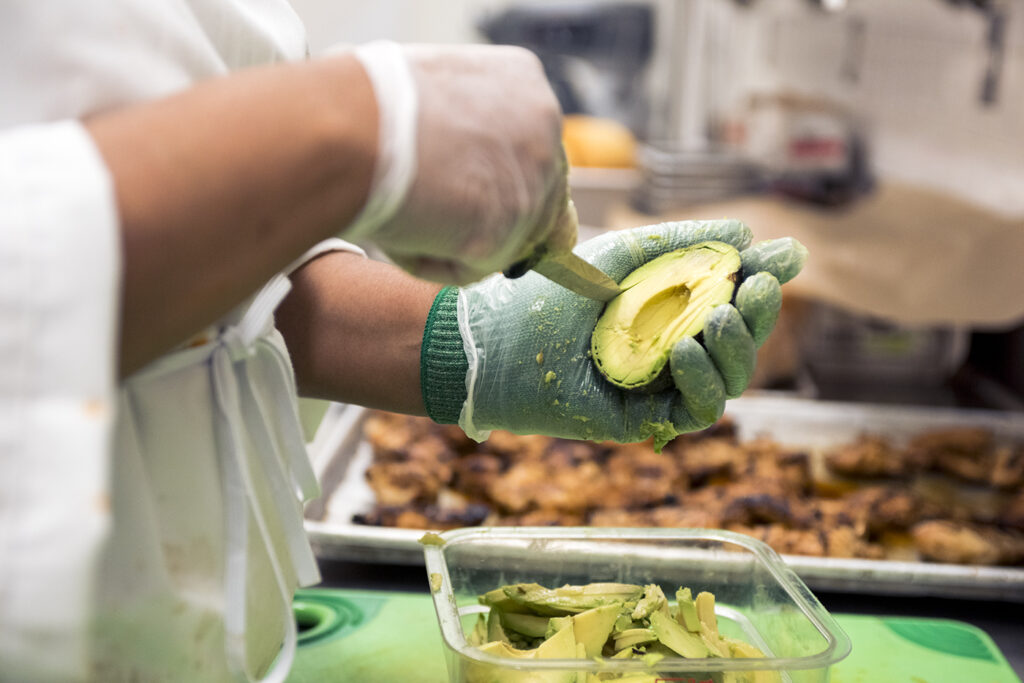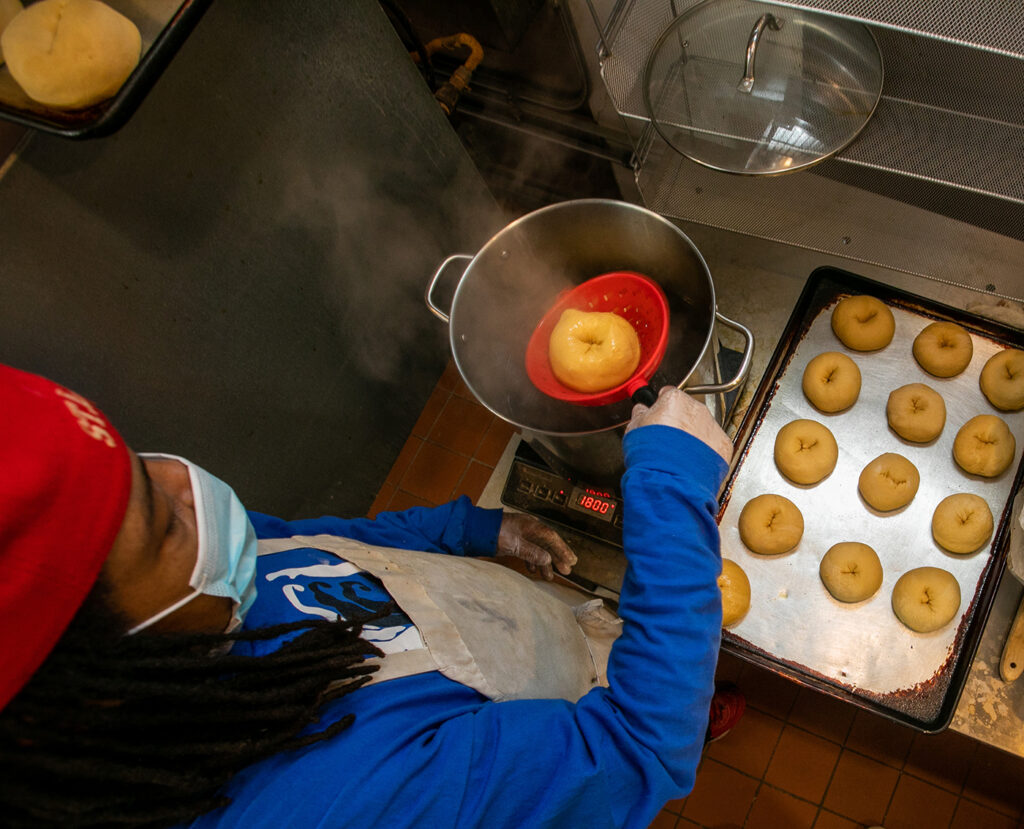From reducing waste to cooking with local produce, Dining Services at Washington University in St. Louis is striving to make its offerings and operations more sustainable. This Earth Day, Andrew Watling, associate director of dining operations, shares five ways campus kitchens are making a difference.
Promoting plant-based alternatives
In an effort to reduce meat consumption, Dining Services now offers a complete plant-based meal at every campus dining location. Examples include Malaysian coconut curry tofu at the Bear's Den, smoked BBQ Beyond Burger at Parkside Cafe and African red potato and chickpea tagine at the Danforth University Center.

"It's very much an American mindset to have meat at every meal," Watling explained. "There also is a misconception that a vegetarian meal won't be filling. We're working to change those attitudes by offering a variety of really delicious, really satisfying dishes. Our short-term goal is for students to have at least one meat-free day per week - a significant shift compared to current habits."
The Office of Sustainability is supporting Dining's efforts through its "Evergreen Challenge," an annual event that strives to educate students about the variety of available plant-based meal options.
Waste reduction
From single-use coffee cups to kitchen grease to orange peels, campus restaurants produce a variety of waste streams. But thanks to university composting and recycling practices and education efforts, almost half of dining-related trash is diverted from landfills.
To make take-out dining as sustainable as possible, Dining Services offers reusable "Eco 2go" containers, which can be requested and returned at a number of campus locations. Compostable containers continue to be the default for every take-out order, with Dining Services having built a stockpile in case of supply-chain shortages.
Food composting, in conjunction with small-batch cooking, also has drastically reduced kitchen waste, said Watling, noting that 120 tons of compost have been collected between 2015 and 2020. Sustainability also offers composting resources for students who live both on and off campus.
Other efforts have made a difference, too. Three large catering vehicles, for example, are fueled by 50% biodiesel, made with recycled kitchen oil. And the university's ban on plastic water bottles - the nation's first - keeps an estimated 500,000 bottles out of the waste stream annually.
Local sourcing

Cooking with locally sourced foods is another priority, especially in this time of frequent supply-chain interruptions. About 22% of Dining Service's food budget is directed toward local vendors such as HartBeet Farm and Heru Urban Farming. The percentage is even higher at Ibby's, where some 75% of meals are locally sourced.
Programs such as the weekly farmers' market at the the School of Medicine and Community Supported Agriculture initiatives also offer students opportunities to buy local produce, meat and cheeses and to meet local farmers.
"St. Louis has a great food scene," Watling said. "We want to help it thrive and create exposure."
Sustainability certification
Since 2017, select campus dining locations have received annual accreditation from the Green Dining Alliance (GDA). Part of local nonprofit "Earthday365," the GDA promotes sustainability in St. Louis restaurants through holistic sustainability assessments. In fall 2021, three university dining locations achieved the highest possible GDA rating: Ibby's, Farmstead Cafe at the School of Medicine and the Whittemore House, which cultivates native plant species and vegetables and herbs for its kitchen.
GDA accreditation is based on an extensive 700-point audit system. Some metrics are unsurprising - local and sustainable sourcing, composting, waste reduction, water usage and energy efficiency. Other measures are less obvious - proper door insulation, electronic (rather than paper) documents, even the evaluation of customer behavior through food waste logs. When these logs led one local restaurant to discover that no one ate their pickles, it stopped serving them, thus saving many pickles from the trash.
Working with student groups
Dining Services isn't alone in its dining sustainability efforts, having a major ally in student groups such as the Burning Kumquat, a student-run organic garden; WashU Green Ambassadors, a peer education program, and the Student Sustainability Board, which helps make campus programs and events more sustainable.
Yash Singh, outgoing president of the Student Sustainability Board, said a top priority is to limit the use of disposable boxes, utensils and cups.
"Shifting campus culture is about more than individual student choice," Singh said. "It's about putting systems and resources in place to make sustainability the easy option."






